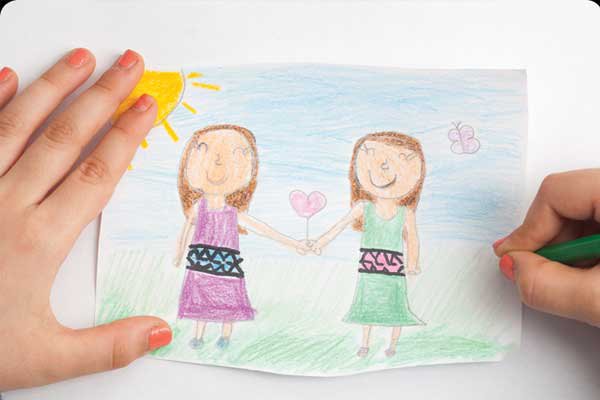
Caring for the Caretaker
When Tracy Glock’s 13-month-old daughter Kira was hospitalized with Acute Myeloid Leukemia, she was touched by the outpouring of support she and her husband received. During those eight difficult months, the community rallied around the family. Friends and acquaintances babysat Kira in the hospital while her mom and dad worked, and many others helped by delivering meals and even mowing the family’s lawn.
“Words cannot express the gratitude you feel when someone you barely know does so much for you,” Tracy says, who was also pregnant at the time with Kira’s sister Allina. Although Kira, now seven, has recovered from the frightening ordeal, she still faces many daily challenges. As a child with Down syndrome and autism, learning and development takes longer and requires more patience compared to the typically developing child. Like many parents who have children with special needs, Tracy says finding time for herself is difficult.
While many of us know how to help a family in crisis, how do we support parents who often put their own needs last as they focus on the daily challenges of caring for special needs youngsters?
OFFER TO BABYSIT.
Finding trustworthy, alternate caretakers is a huge relief for parents who regularly juggle doctor’s appointments, school issues and therapy, not to mention jobs and other children. “Every special needs parents’ needs are different, but most just love a little rest,” Tracy says.
Because children with special needs require more attention from their parents, healthcare providers and therapists, other youngsters in the family may feel slighted. “Children always struggle and this is the case whether they’re special needs or not,” says Nancy Masannat, mom to two children, including Emy, 16, and Kyle, 14, who is on the autism spectrum. “There are going to be sibling jealousies.”
When her children were younger, Nancy would often schedule her son’s appointments during times when her daughter was in preschool. “In my daughter’s mind, it wasn’t fair that someone was coming to the house and playing with her brother and not her.” Having access to a qualified babysitter you can trust with your special needs child, can give you an opportunity to spend much-needed, one-on-one time with your other children too.
LISTEN.
Ask your friend how she’s doing and then simply listen. Avoid offering platitudes or suggestions to help her fix problems. “We all just like to be heard. Everybody likes to vent,” Nancy says. “Just listen to what the issues are without judgment. That’s a huge help for everybody, but primarily when you’re dealing with something that someone else might not understand.”
EDUCATE YOURSELF.
Get to know your friend’s child, including her disability, her personality quirks and her individual needs. And ask your friend about her specific parenting challenges. “It shows that you care and will help you provide more effective support,” says Heather Trammell, mom to two special needs children, including Beth, 14, who has Down syndrome and Marie, 11, who has high-functioning autism. Both girls also have a connective tissue disorder called Ehlers-Danlos syndrome.
SUGGEST RESOURCES.
Support groups help parents feel less alone and provide valuable resources for assistance in childcare, school issues and navigating healthcare. “The biggest thing for me was to know that I wasn’t in this by myself-that I wasn’t the only person who had a child who didn’t sleep well; that I wasn’t the only one with a child who was now three and not talking,” Nancy says.
To find support groups in your area, consult with the therapists and teachers your child already works with, your library, your church and online. Some helpful sites include, www.autismspeaks.org, which includes resources for families, and the National Down Syndrome Society, www.ndss.org. Also check out Facebook and MeetUp.com for local support groups.
OTHER IDEAS TO BRIGHTEN YOU FRIEND’S DAY:
• Purchase a gift certificate for a massage or manicure
• If you plan to have the family over, ask your friend if you should be aware of any food sensitivities or specific ground rules to ensure a successful visit
• Offer to babysit and/or help with siblings
• Help with getting kids to practices, appointments or other functions
• Deliver a meal
• Mow their lawn
• Send a bouquet of cheerful flowers
• Arrange for a house cleaning crew
• Ask if you can pick up anything while running errands
• Mail an encouraging card
Freelance journalist, Christa Melnyk Hines, and her husband are the parents of two sons. She is the author of Confidently Connected: A Mom’s Guide to a Satisfying Social Life.
Views: 0





